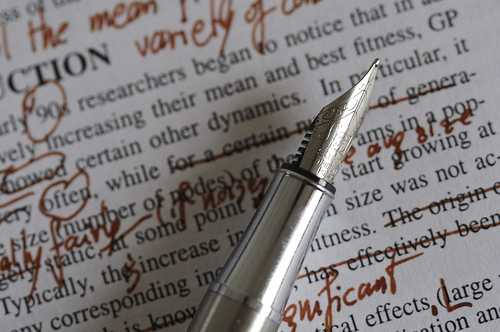
9 Editing Tips that Make Your Writing Sparkle
It’s often said that writing is rewriting. Banging out a quick first draft can be fun, but the real grunt work comes in revising your work.
9 editing tips that can help you polish your writing until it sparkles:
- Read aloud
When you become too familiar with a piece of writing, suddenly it’s more difficult to spot weaknesses and errors. Instead of trusting your eyes to take on all the hard work, read your writing aloud, which forces you to slow down.
- Record yourself
Better than just reading your work aloud is recording yourself (most computers have a voice recording program already installed). When you play back the clip, you’ll be able to hear the weaknesses in your manuscript.
- Take a break
Don’t write the last word of your first draft and then launch into editing mode straight away. Taking a break of at least 24 hours from a piece of writing will bring to light all sorts of issues you never would have noticed.
- Cut unnecessary words and phrases
If your sentence makes sense without using a particular word, cut it. Particular offenders are “that,” “in order to,” and “each and every.” By using unnecessary words, you’re actually diluting your message’s power.
- Reword passive voice
“A passive construction occurs when you make the object of an action into the subject of a sentence,” says this university web resource. Instead of saying “The door was slammed by Joe,” say, “Joe slammed the door.” Choose “Stephen broke my heart!” over, “My heart was broken by Stephen!”
- Identify your crutch words
Have you ever re-read a piece of your writing, only to find you’ve used the same word twice in the same sentence, or three times in the same paragraph? We rarely notice this happening until the editing stage. Keep a handy list of words you tend to overuse, then use your computer’s search function to spot them when you edit.
- Check your transitions
“The most convincing ideas in the world, expressed in the most beautiful sentences, will move no one unless those ideas are properly connected,” (The Guide to Grammar and Writing). Do you jump from one thought to another? Have you taken care to conclude one point before you segue into the next? It’s important to ensure smooth transitions between paragraphs, sections, or chapters of your writing.
- Replace cliches
We often write cliched words or phrases without even thinking about them, simply because they’re so ingrained in our manner of speaking. Is there a better way to rephrase those cliches so you use more original and powerful language?
- Vary your sentence structure
Nothing is more annoying than reading the same sentence structure or length over and over again. Very short, choppy sentences get old quickly, and long, rambling ones frustrate readers. Vary the length of your sentences, and their structure, for a more fluid reading experience.
Polished Writing
No matter what you’re writing or what audience you’re writing for, you’ll want to put your best foot forward. Follow these guidelines when you revise your work, and you’ll notice improvement immediately.
What strategies do you use to help you edit your work?
Today’s Challenge: Next time you think you’ve finished editing a piece of writing, leave it for 24 hours and edit it again. You might be surprised at what you find.